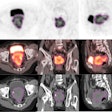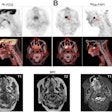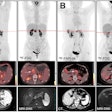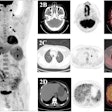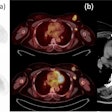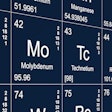Induction chemotherapy followed by radiation therapy (RT) has produced good outcomes in larynx preservation for patients with advanced head and neck cancers, according to data presented this week at the Multidisciplinary Head and Neck Cancer Symposium in Chandler, AZ.
Curative treatments for head and neck cancer are brutal to the patients receiving them, with patients facing tough questions regarding quality of life following treatment. But new therapy options offer hope to the 500,000 patients worldwide diagnosed with this disease, according to Dr. Gilles Calais of Hôpital Bretonneau in Tours, France.
The treatment goal for patients with stage III and IV cancer of the larynx is preservation of the larynx without jeopardizing survival. Total larynx removal with permanent tracheotomy is the current standard of care, but it significantly reduces the quality of life of the patient.
The Groupe Oncologie Radiothérapie Tête et Cou (GORTEC) 2000-01 clinical trial enrolled 213 patients at four cancer centers in France. They received a chemotherapy treatment of either cisplatin and fluorouracil or cisplatin/fluorouracil/docetaxel, followed by radiation therapy in case of good response. Patients who responded well to this larynx preservation treatment completed follow-up questionnaires evaluating the quality of their voice, nutritional function, and overall quality of life.
Sixty-one patients ultimately completed questionnaires five years after treatment. Voice disability was low for 57% of the patients and moderate for 28%, Calais reported. Furthermore, 40% of these patients had no eating or swallowing problems.
On the negative side, 15% of the 61 patients experienced severe voice disability, 8% required a feeding tube, and 3% ultimately required a tracheotomy.
Survival was better for patients who received the docetaxel chemotherapy, with 36% being free of laryngoesophageal dysfunction, compared with 21% for the other group.
The symposium was sponsored by a consortium of societies, including the American Society of Clinical Oncology (ASCO), the American Society for Radiation Oncology (ASTRO), the SNM, and the American Head and Neck Society (AHNS).
By Cynthia E. Keen
AuntMinnie.com staff writer
February 26, 2010
Related Reading
Adverse effects common with chemoradiation for head and neck cancer, December 22, 2009
Concurrent chemo + radiation increases survival in advanced head, neck cancer, October 29, 2009
Radiation therapy slows return of head/neck cancer, September 15, 2009
Protons promise lower second cancer risk, May 9, 2009
Copyright © 2010 AuntMinnie.com












